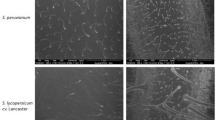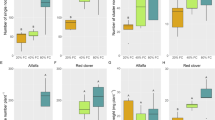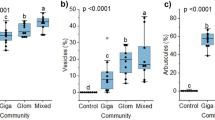Abstract
Environmental stresses affect plant growth and performance in nature. Host plant quality in turn affects herbivore performance and population dynamics. In view of these interactions, two major hypotheses were formulated. The plant stress hypothesis proposes that physiologically stressed plants become more susceptible to herbivores. The plant vigour hypothesis proposes that plants that grow vigorously are favourable to herbivores. Here we test the plant stress/plant vigour hypotheses for a leaf miner, Agromyza nigripes (Diptera; Agromyzidae), on the grass Holcus lanatus. We assessed larval performance (survival, developmental time, pupal mass) on grasses growing under different levels of nutrients (Hoagland solution) and drought stress, under controlled field and greenhouse conditions. Plant vigour and nutrient content were high on soils with an intermediate nutrient concentration and lower under drought stress and soil nutrient shortage and overdose. Larval performance was also highest on wet soils with intermediate nutrient supply. The results of the mining flies support the plant vigour hypothesis (density, survival and development better on vigorous plants). Herbivore performance is higher on leaves with a higher protein content.
Similar content being viewed by others
Author information
Authors and Affiliations
Additional information
Electronic Publication
Rights and permissions
About this article
Cite this article
De Bruyn, L., Scheirs, J. & Verhagen, R. Nutrient stress, host plant quality and herbivore performance of a leaf-mining fly on grass. Oecologia 130, 594–599 (2002). https://doi.org/10.1007/s00442-001-0840-1
Received:
Accepted:
Published:
Issue Date:
DOI: https://doi.org/10.1007/s00442-001-0840-1




